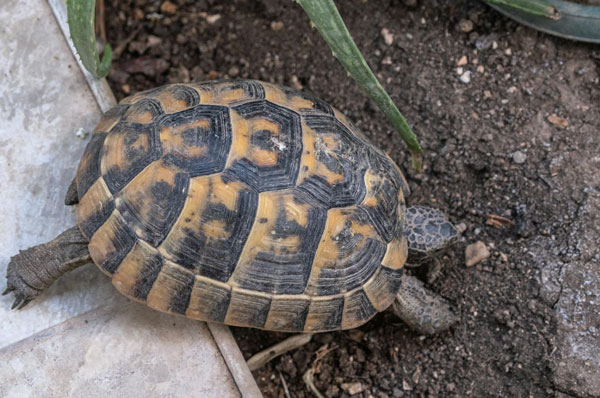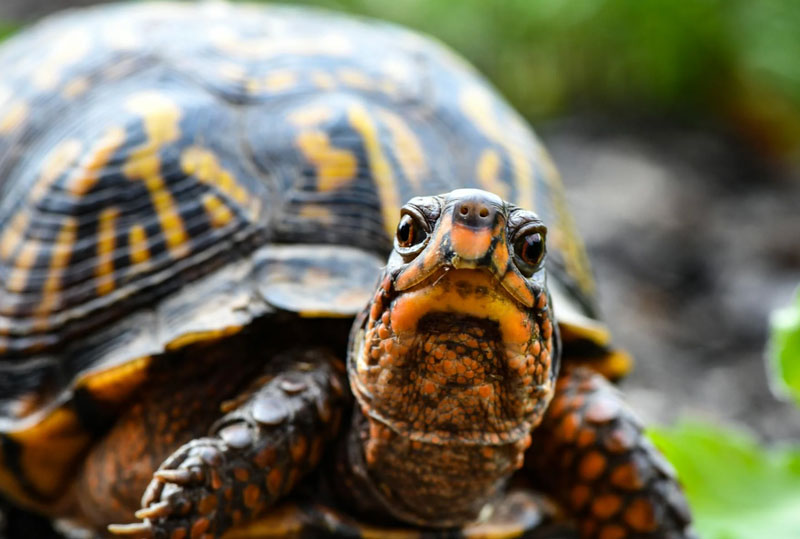What Do Box Turtles Eat? A Comprehensive Guide
Box turtles are fascinating reptiles with unique dietary needs, and ensuring a balanced diet is crucial for their health and longevity. If you are new to keeping a box turtle at home, you may be eager to know what box turtles eat. This comprehensive guide will help you understand what box turtles eat, how often to feed them, and which foods are beneficial or harmful. Let’s dive into the specifics so you can give your pet the best care possible.

Types of Box Turtles
Before diving into the diet specifics, it’s essential to know that different types of box turtles may have slightly different dietary preferences. There are several species of box turtles, including the Eastern Box Turtle, Three-toed Box Turtle, Florida Box Turtle, and Ornate Box Turtle. Each species has unique characteristics that can influence their nutritional requirements.
Eastern Box Turtle: Typically has a varied diet including fruits, vegetables, and insects.
Three-toed Box Turtle: Prefers more animal-based proteins compared to other species.
Florida Box Turtle: Known for a higher intake of vegetation.
Ornate Box Turtle: Requires a diet rich in proteins due to their active lifestyle.
Understanding the type of box turtle you have can guide you in making the best dietary choices.
How Often to Feed Box Turtles?
Feeding frequency is another crucial aspect of box turtle care. Overfeeding or underfeeding can lead to health issues. Generally, young box turtles need more frequent meals compared to adults.
Young Box Turtles: Should be fed every day due to their rapid growth and higher metabolism.
Adult Box Turtles: Can be fed every other day or a few times a week.
Monitoring Health: Always monitor their weight and adjust feeding frequency as needed. Obesity or malnourishment can be prevented through careful observation.
Seasonal Changes: In colder climates, box turtles might hibernate and require less food during the winter months.
Variety: Ensuring a variety of foods in each meal can help meet their nutritional needs more effectively.
Supplementation: Regular feeding should be balanced with appropriate supplements to avoid deficiencies.
What Vegetables Do Box Turtles Eat?
Vegetables are a critical component of a box turtle’s diet. They provide essential vitamins and fiber.
Leafy Greens: Kale, spinach, and mustard greens are excellent options. They are rich in essential nutrients.
Root Vegetables: Carrots and sweet potatoes offer a crunchy texture that turtles enjoy. These vegetables are also rich in beta-carotene, which is beneficial for their health.
Squash and Zucchini: These can be offered occasionally. They provide variety and additional nutrients.
Here are some tips you should remember when feeding vegetables to box turtles:
Avoid Overfeeding Certain Vegetables: Vegetables like spinach, Swiss chard, and beet greens should be fed in moderation due to their oxalate content, which can interfere with calcium absorption. Additionally, use caution when offering cabbage, kale, and mustard greens, as they contain goitrogens, substances that may disrupt thyroid function if consumed in excess.
Preparation: All vegetables should be chopped into manageable pieces to prevent choking.
Organic Choices: Whenever possible, choose organic vegetables to avoid pesticide exposure.
Frequency: Vegetables should be a regular part of their diet, offered several times a week.

What Fruits Do Box Turtles Eat?
Fruits are another essential part of their diet but should be given in moderation due to their high sugar content.
Berries: Strawberries, blueberries, and raspberries are favorites. They are rich in antioxidants.
Melons: Watermelon, cantaloupe, and honeydew provide hydration and vitamins.
Apples and Pears: These fruits are good options but should be given sparingly due to their high sugar content.
Bananas: A treat that should be given occasionally. They are high in potassium.
Avoid Citrus: Fruits like oranges and lemons are too acidic for box turtles and should be avoided.
Need to notice that Fruits should be washed, peeled, and chopped into bite-sized pieces. Fruits should make up a smaller portion of the diet compared to vegetables.
What Animal-Based Proteins Do Box Turtles Need?
Animal-based proteins are vital for a balanced diet, particularly for younger turtles who require more protein for growth.
Insects: Crickets, mealworms, waxworms, and beetles are excellent sources of protein. These should be gut-loaded (fed nutritious foods) before being offered to the turtle.
Earthworms: Earthworms are a favorite among box turtles and provide a good source of protein and essential nutrients.
Snails and Slugs: These are natural prey for box turtles in the wild and provide essential proteins and minerals, particularly calcium.
Small Fish: Feeder fish, like guppies or minnows, can be offered occasionally. They should be given in moderation to avoid excess fat.
Cooked Lean Meats: Occasionally, small pieces of cooked chicken or turkey can be offered, but these should not be seasoned or contain any added oils or fats.
Eggs: Hard-boiled eggs or scrambled eggs (without any added salt or butter) can be offered as a protein source.
Pinkie Mice(not recommended): For larger box turtles, pinkie mice (newborn mice) can be an occasional treat, providing high protein and calcium.
Protein intake should be balanced with vegetation to prevent kidney issues. Furthermore, Animal-based proteins should comprise about 25-50% of the diet for young turtles and be reduced for adults.
Supplements and Vitamins for Box Turtles
Supplements are essential to ensure that box turtles receive all necessary nutrients that might not be present in their regular diet.
Calcium Powder: Helps in keeping their shells strong. It should be sprinkled on their food regularly.
Vitamin D3: Essential for calcium absorption. Especially important for indoor turtles not exposed to natural sunlight.
Multivitamin Powder: Ensures they are getting a range of essential nutrients.
Do Box Turtles Need Water?
Water is crucial for the hydration and overall health of box turtles.
Clean Water Supply: Always ensure that fresh, clean water is available.
Hydration: Water helps in digestion and overall bodily functions.
Soaking: Box turtles enjoy soaking in water. A shallow dish with clean water should be available for soaking.
Dietary Water: Foods high in water content, like melons and berries, help in keeping them hydrated.
Foods to Avoid for Box Turtles
Certain foods can be harmful or even toxic to box turtles.
Processed Foods: Do not feed box turtles processed human foods. They contain high levels of salt, sugar, and additives.
Dairy Products: Turtles cannot digest dairy, leading to digestive issues.
Toxic Plants: Avoid plants like avocado, rhubarb, and the leaves of tomato plants which are toxic.
Onions and Garlic: These can cause stomach upset and should always be avoided.
High-fat Foods: Foods like fatty meats should be avoided as they can lead to obesity and organ problems.
Candy and Sweets: Not suitable for turtles and can cause severe health issues.
Wild-Caught Insects: Might contain pesticides or parasites. It’s safer to provide store-bought insects.
Conclusion
A balanced diet is essential for maintaining the health and vitality of box turtles. By offering a mix of vegetables, fruits, and animal-based proteins, along with the necessary supplements, you can ensure your box turtle thrives. Always be mindful of the foods to avoid to prevent potential health issues. With proper care and feeding, your box turtle can live a long, healthy life.
FAQs
Can box turtles eat lettuce?
Yes, box turtles can eat lettuce, but it should be given in moderation. Opt for nutrient-rich varieties like Romaine or red-leaf lettuce rather than iceberg lettuce which has low nutritional value.
How long can box turtles go without eating?
Box turtles can go several weeks without eating, especially during hibernation. However, regular feeding is vital for their health. A healthy turtle should eat several times a week.
What are favorite foods for box turtles?
Box turtles have varied preferences, but favorites often include worms, berries, and leafy greens. A balanced diet with these foods ensures they receive necessary nutrients.
